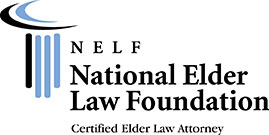- Why should I have a Will?
- What is a self-proving Will?
- I own a piece of real estate with another person, can I leave my share of the property to my children in my Will?
- What happens if after I write my Letter of Last Instructions I change my mind as to who should receive my personal property?
- What is a short certificate?
- When are Federal and State Estate Tax Returns due?
- When are State Inheritance Tax Returns due?
- What is the difference between Medicare and Medicaid?
- Where can I find out if I’m eligible for Medicare?
- What are PAAD, Lifeline and HAAD and what are their eligibility requirements?
Q. Why should I have a Will?
A. In addition to saving your heirs time and money, a Will saves the cost of a bond and allows you to decide where your assets will go upon your death as opposed to the State deciding for you. Additionally, you are able to select the executor who will manage the estate and distribute the assets to the beneficiaries.
Q. What is a self-proving Will?
A. When a Will is signed by the individual and the witnesses in front of a notary and an affidavit to that effect is attached to the Will it becomes self-proving. This means the witnesses will not be required to appear at the Surrogate’s office when the Will is offered for Probate.
Q. I own a piece of real estate with another person, can I leave my share of the property to my children in my Will?
A. It depends on the way title is held in the property. If it is owned as joint tenants with a right of survivorship, then you cannot transfer it under your Will. This is because by operation of law the property automatically transfers to the survivor. If the property is owned as tenants in common, then you can transfer your share (1/2, 1/3, etc.) of the property in your Will.
Q. What happens if after I write my Letter of Last Instructions I change my mind as to who should receive my personal property?
A. Not a problem. Just write a new one and destroy the old one.
Q. What is a short certificate?
A. It is a legal document issued by the Surrogate which the executor/administrator uses as proof of his or her authority to transfer or sell assets of the deceased.
Q. When are Federal and State Estate Tax Returns due?
A. Within 9 months after the decedent’s date of death.
Q. When are State Inheritance Tax Returns due?
A. Within 8 months after the decedent’s death.
Q. What is the difference between Medicare and Medicaid?
A. Medicare is an insurance program. Medical bills are paid from trust funds which those covered have paid into. It serves people over 65 primarily, whatever their income; and serves younger disabled people and dialysis patients. Patients pay part of the costs through deductibles for hospital and other expenses. Small monthly premiums are required for non-hospital coverage. Medicare is a federal program. It is basically the same everywhere in the United States and is run by the Centers for Medicare & Medicaid Services, an agency of the federal government.
Medicaid is an assistance program. Medical bills are paid from federal, state and local tax funds. It serves low-income people of every age. Patients usually do not pay for covered medical expenses. A small co-payment is sometimes required. Medicaid is a federal-state program. It varies from state to state. It is run by state and local governments within federal guidelines.
Q. Where can I find out if I’m eligible for Medicare?
A. Generally, Medicare is available for people age 65 or older, younger people with disabilities and people with End Stage Renal Disease (permanent kidney failure requiring dialysis or transplant). Medicare has two parts, Part A (Hospital Insurance) and Part B (Medicare Insurance). You are eligible for premium-free Part A if you are age 65 or older and you or your spouse worked and paid Medicare taxes for at least 10 years. You can get Part A at age 65 without having to pay premiums if:
- You are receiving retirement benefits from Social Security or the Railroad Retirement Board.
- You are eligible to receive Social Security or Railroad benefits but you have not yet filed for them.
- You or your spouse had Medicare-covered government employment.
If you (or your spouse) did not pay Medicare taxes while you worked, and you are age 65 or older and a citizen or permanent resident of the United States, you may be able to buy Part A.
If you are under age 65, you can get Part A without having to pay premiums if:
- You have been entitled to Social Security or Railroad Retirement Board disability benefits for 24 months.
- If you have Lou Gehrig’s disease, you can get your Medicare benefits the first month you get disability benefits.
- You are a kidney dialysis or kidney transplant patient.
While most people do not have to pay a premium for Part A, everyone must pay for Part B if they want it. The monthly Part B premium is adjusted annually. This monthly premium is deducted from your Social Security, Railroad Retirement, or Civil Service Retirement check. If you do not get any of these payments, Medicare sends you a bill for your Part B premium every 3 months. If you have questions about your eligibility for Medicare Part A or Part B, or if you want to apply for Medicare, call the Social Security Administration or visit their website. The toll-free telephone number is: 1-800-772-1213. The TTY-TDD number for the hearing impaired is 1-800-325-0778. You can also get information about buying Part A as well as Part B if you do not qualify for premium-free Part A.
Q. What are PAAD, Lifeline and HAAD and what are their eligibility requirements?
A. The Pharmaceutical Assistance to the Aged & Disabled program (PAAD) helps eligible New Jersey residents pay for prescription drugs, insulin, insulin needles, certain diabetic testing materials and syringes and needles for injectable medicines used for the treatment of multiple sclerosis. Lifeline is a utility assistance program that offers $225 to persons who meet the PAAD eligibility requirements or who receive Supplemental Security Income (SSI). This includes utility customers as well as tenants whose utility bills are included in their rent. Only one tenant in a household is entitled to this assistance. Hearing Aid Assistance to the Aged & Disabled (HAAD) provides a $100 reimbursement to eligible persons who purchase a hearing aid. “Hearing Aid” means a custom-fitted ear-level or body-worn electronic device which enhances communication for the hearing impaired.
In 2015 you are eligible for PAAD, Lifeline, and HAAAD if you meet the following requirements:
- You are a New Jersey resident;
- Your income is less than $26,575 if you’re single, or less than $32,582 if you are married;
- The income limit will increase each January by the amount of the Social Security cost-of-living increase;
- You are at least 65 years of age, OR at least 18 years of age and receiving Social Security Disability benefits.







